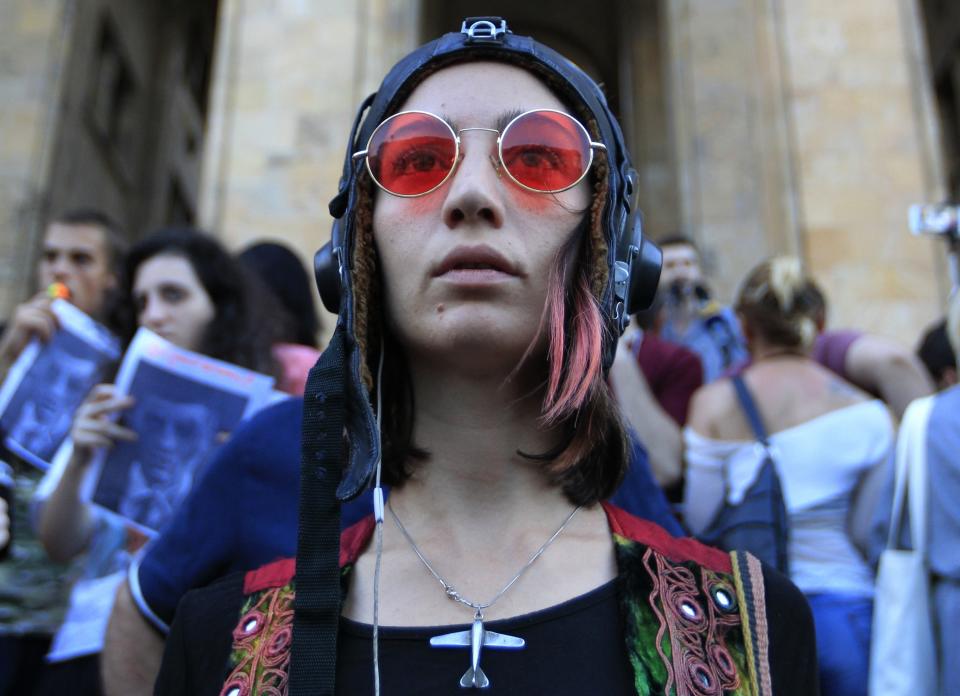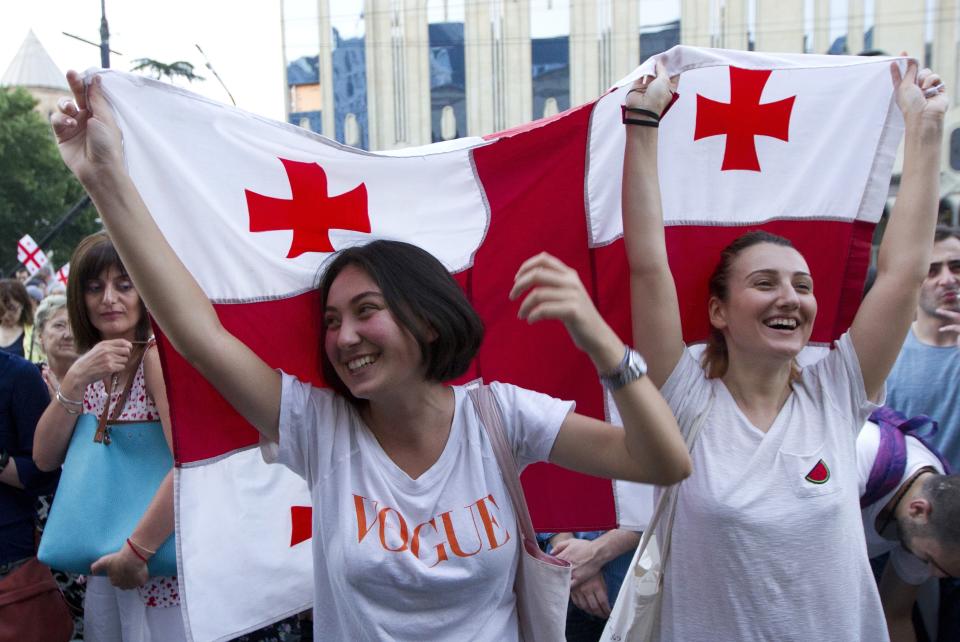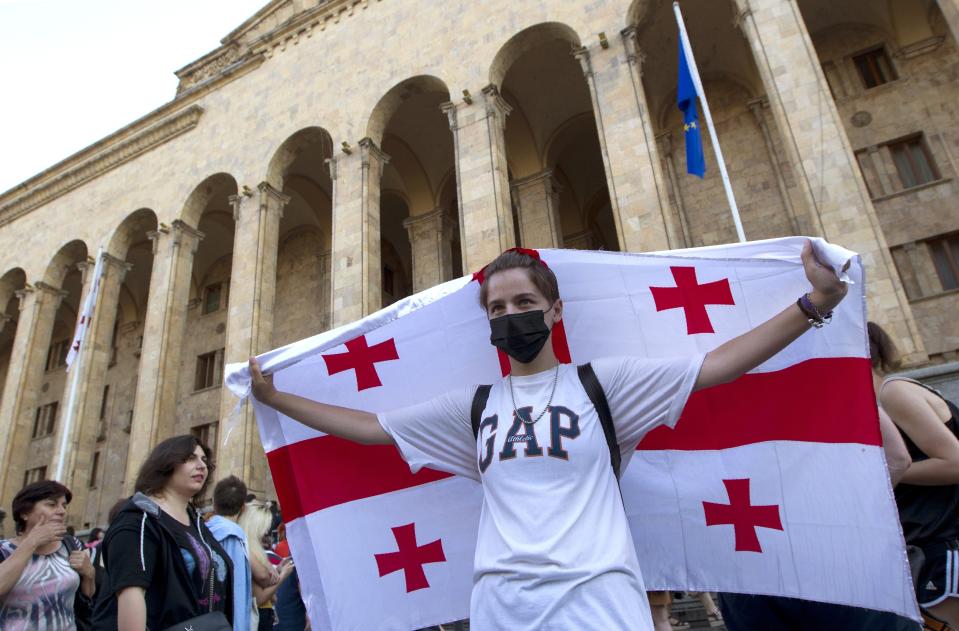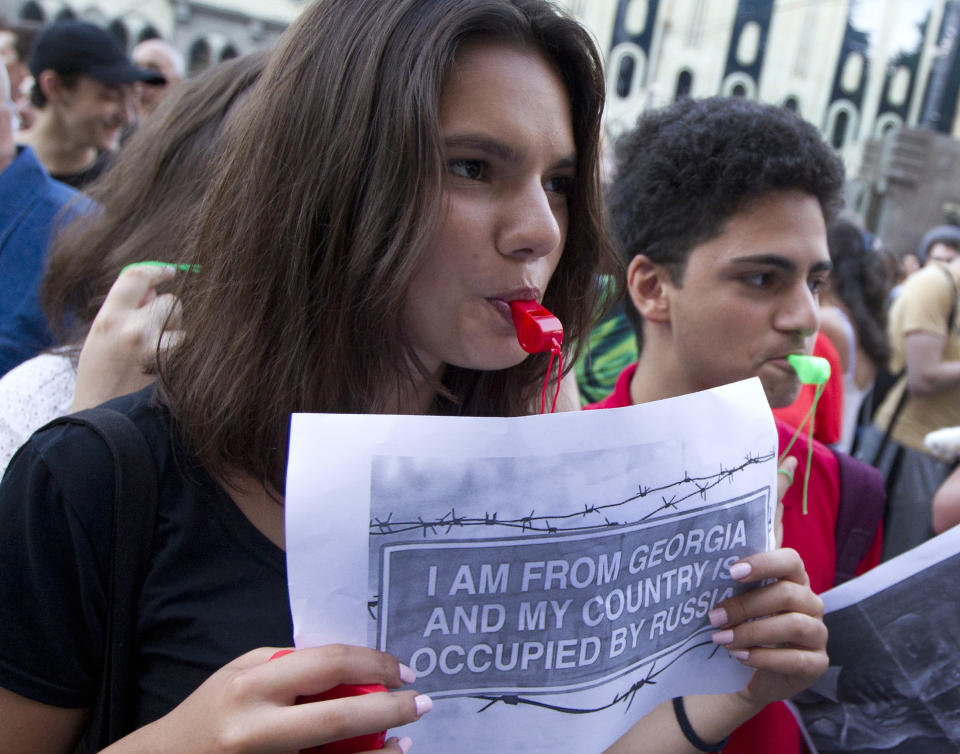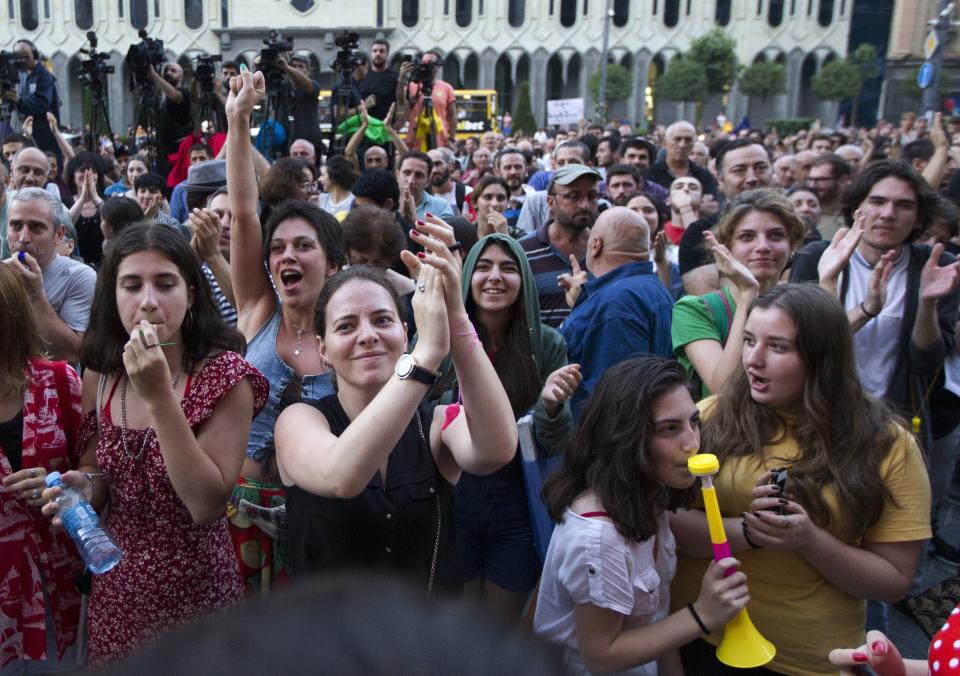Georgia's ruling party announces electoral changes
TBILISI, Georgia (AP) — The leader of Georgia's ruling party said Monday that the ex-Soviet nation will hold the next parliamentary election based entirely on a proportionate system, fulfilling a key demand of anti-government protesters.
The statement from Bidzina Ivanishvili, the founder of the Georgian Dream party, followed four days of protests in the capital. Thousands of demonstrators have rallied in front of parliament, demanding changes in the electoral law and the ouster of the interior minister whom they blame for a violent dispersal of a rally Thursday.
Throngs of demonstrators tried to storm parliament that day, angered by a Russian lawmaker taking the speaker's seat during an international meeting of lawmakers. The protest reflected simmering anger against Russia, which routed Georgia in a 2008 war and maintains a military presence in Georgia's two breakaway provinces of Abkhazia and South Ossetia.
The protesters consider Ivanishvili, Georgia's richest man who made his fortune in Russia, a conduit of Moscow's influence and see the ruling party as overly friendly to Russian interests.
Unfazed by Ivanishvili's announcement, a motorcade of protesters drove across the capital Monday to the Interior Ministry headquarters to push for the minister's resignation.
Thousands of protesters gathered in front of the parliament building in the evening for the fifth consecutive night of demonstrations, calling for the interior minister to step down and pressing other demands.
The protests have marked the largest outpouring of anger against Georgian Dream since it took power in 2012.
Officials said at least 240 people were injured when riot police used tear gas and water cannons and fired rubber bullets to disperse the protesters. More than 300 demonstrators have been arrested.
Demonstrators have returned to parliament for daily rallies, demanding the release of those detained, the ouster of the nation's interior minister and changes in the electoral law to have legislators chosen fully proportionally rather than the current mix of party-list and single-mandate representatives. The opposition believes that single-mandate races favor the ruling party.
Ivanishvili, in his first public appearance since the crisis erupted, said Georgian Dream has agreed to change the election law earlier than planned and to hold next year's parliamentary election based on a fully proportional system. He also announced that the ruling party offered to drop the threshold of 5% of the vote for parties to get represented.
"We are seeing today that the society wants changes," Ivanishvili said. "Our initiative opens the way for large-scale political changes."
Later Monday, some demonstrators said they were unsatisfied by Ivanishvili's offer to change the electoral code.
Dropping the 5% barrier means "representatives of small parties that receive material aid from Russia can go to parliament. The devil is in the details, and it is very dangerous," protester Irakli Sikharulidze said.
Moscow has responded to anti-Russian protests by ordering a ban on Russian flights to Georgia starting July 8. Russia's transportation ministry also banned Georgian airlines from flying to Russia, citing their debts and safety issues.
Russian President Vladimir Putin's spokesman, Dmitry Peskov, said Monday the flight ban reflected concerns about the safety of Russian travelers amid what he described as "Russophobic hysteria" in Georgia. He told reporters that the ban could be lifted after the tensions abate.
The flight ban deals a serious economic blow to the Caucasus nation, which has annually hosted more than 1 million Russian tourists, attracted by its scenic mountains, lush sea coast and the renowned wine culture.
It echoes bans that Russia imposed in 2006 on flights and imports of Georgian wine and mineral water as tensions rose between the countries. Air connections were restored in 2010 and Russia lifted the wine import ban in 2013.
On Monday, the Russian consumer regulator Rospotrebnadzor hinted at a possible new ban, saying that it has registered a steady decline in the quality of imported Georgian wine.
In the past, Russia often cited sanitary reasons for food imports bans widely seen as politically driven.
___
Vladimir Isachenkov in Moscow contributed to this report.
